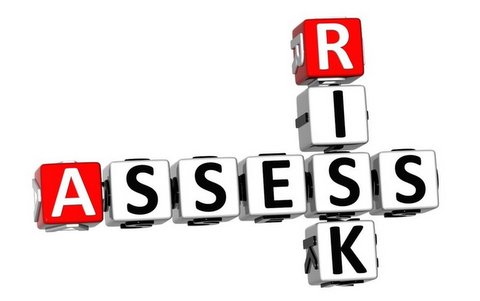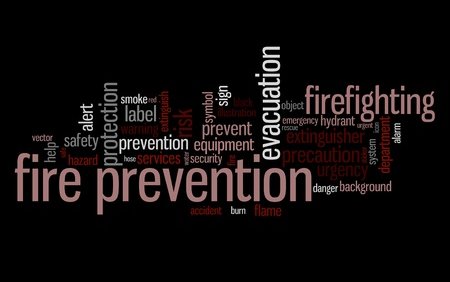Health & Safety for Fundraisers
Have you considered the health and safety aspects of running your fundraising event?
Fundraising is more than beans in a bath and cutting long hair these days. From tough mudder to skydiving, fundraising has taken on hair raising adventures in the quest for greater funding.
This has implications for health and safety. Getting it wrong can mean huge fines that would dwarf any funds raised.
This shouldn’t deter you from holding brilliant fundraising events.
Health and safety is often used as an excuse to prevent events from taking place. However, with proper planning and organisation, you’ll be able to put on an event that’s fun and safe for all, and raise lots of money!
So what can you do?
Here are some key things to consider when organising a fundraiser
Safety plan
You need to identify the:
- Scale, type and scope of your event
- Type and size of your audience (many arrangements depend on crowd size)
- Location and timing of your event.
This information will help you create a safety plan. The level of detail should be proportionate to your event’s scale and degree of risk. You’ll also need to assess the suitability of your venue/site. Attendees should be able to safely:
- Assemble and enter
- Move around
- Exit or evacuate in an emergency.
Once the event has started, your role will be less about planning and more about managing and monitoring the event.
Risk assessment
While it is always wise to carry out a risk assessment, it is not a legal requirement – unless as the organiser you employ people or intend the event to be covered by Public Liability insurance.
A risk assessment will help you:
- Find, reduce and control the potential risks to those attending
- Reduce the likelihood and/or severity of any incidents
- Keep volunteers, supporters and members of the public safe
- Show Health & Safety has been suitably considered and managed
- Safeguard your charity’s reputation.
Make sure you remove or reduce the risks to an acceptable level. This is particularly the case with children – note that extra care is needed if you’re planning to use any inflatables such as bouncy castles.
Reasonably necessary steps must be taken to avoid accidents. A qualified Health & Safety Consultant will point you in the right direction.
You must also make sure everyone is fully briefed about the event including:
- Details of any risks (for example if your fundraiser is close to water)
- Fitness requirements
- Special equipment or clothing
- Expected standards of behaviour.
Have a look at an example risk assessment for fundraising but remember to consider the unique circumstances of your event.
The best way to avoid any incidents or mishaps is to apply plenty of common sense – thoroughly check anything that’s a possible source of harm.

Outdoor event
You should have a contingency plan such as an alternative venue in case of severe weather.
Attendees should be advised to wear appropriate clothing.
Make sure you consider how to avoid traffic congestion if people are to arrive by vehicle. Also, make sure everyone is informed of road safety rules especially speed limits.
Think about what how crowd movement, dynamics and behaviour might cause harm as people arrive, enter, move around, exit and disperse.
Check whether you need any special licenses such as a public entertainment licence or licence to sell alcohol.
First aid
If you’re holding an event involving many people, it’s a good idea to have qualified first aiders if possible.
The greater the risk of someone being injured, the more appropriate it will be to have a trained first aider or arrange for an ambulance to be there. For example, if you’re having a fun run or bike ride, you should have trained first aiders present (St John’s Ambulance and Red Cross may help provide cover).
For smaller events, such as a coffee morning, make sure you have a First Aid kit.
Events involving strenuous activities such as running, swimming etc should clearly state that a medical check-up is recommended.
It’s really important people don’t put themselves or others at risk by attempting something that’s too demanding or even dangerous.
Fire safety
In the event of a fire, make sure you have a simple exit plan and assembly point.
Make sure all fire exits are clear and can easily be opened – attendees must be made aware of them.
Check if your venue has fire extinguishers and if possible have someone attend who knows how to use them.
Before the event, carry out a final check on the fire exits.

Food hygiene
Food hygiene certificates are not a legal requirement. But if your event involves handling food, you’ll need to follow hygiene rules for safe preparation, storage, display and cooking of food.
Some simple tips include:
- Washing hands and equipment in hot soapy water
- Keeping food out of the fridge for the shortest possible time
- Making sure food is properly cooked
- Keeping raw and ready-to-eat foods apart
- Not using food past its ‘use by’ date
- Knowing what is in the ingredients and displaying or providing information about allergens (only label food as nut free etc if you’re 100% sure).
Remember on hot summer days food goes off quickly and ice creams melt!
Emergency
You will need an emergency plan to effectively respond to health and safety incidents and other emergencies that might occur at the event.
This plan should be proportionate to the level of risk presented by your activity(s) and the potential incident’s severity.
Develop emergency procedures for staff and volunteers to follow (e.g., if there’s sudden very bad weather, a fire or structural failure) including:
- Getting people away from immediate danger
- Dealing with injuries
- Liaising with the emergency services.
Debrief
A debrief after the event can you help evaluate what went well and what you could have done better.
This can feed into the planning of any similar future events!








